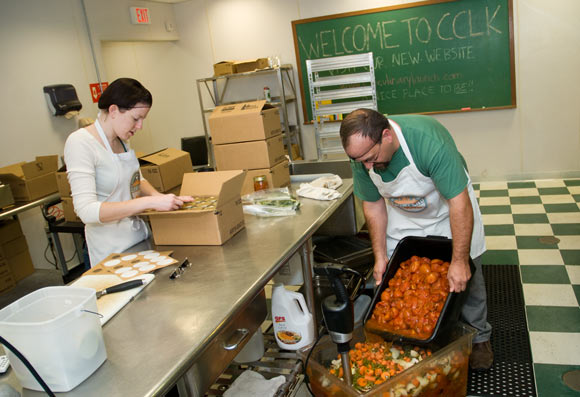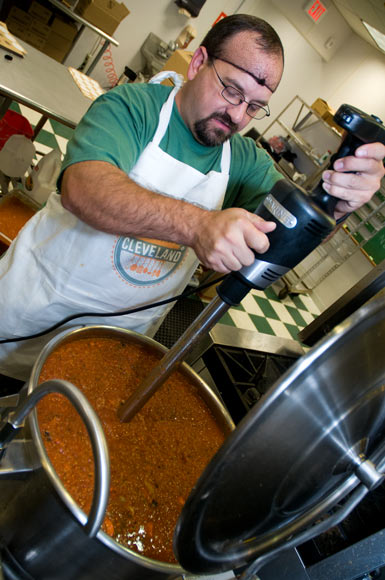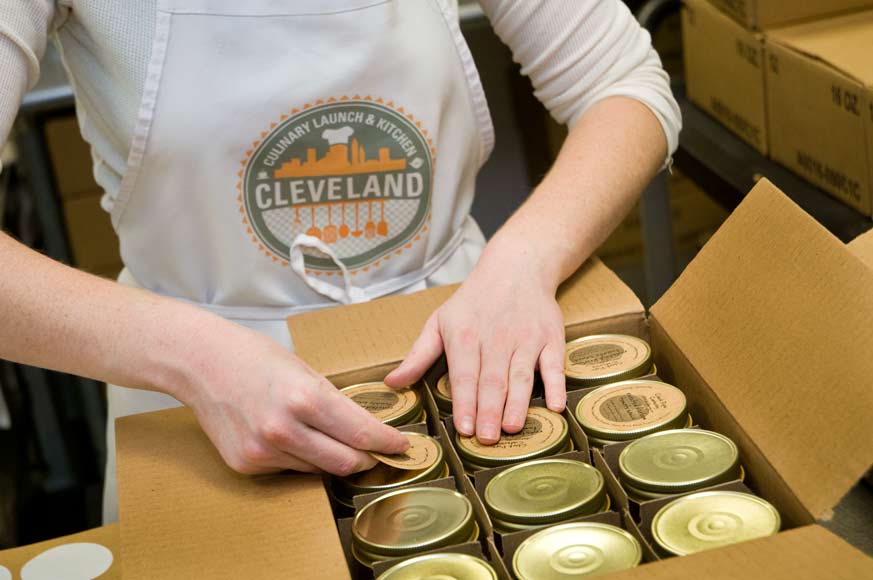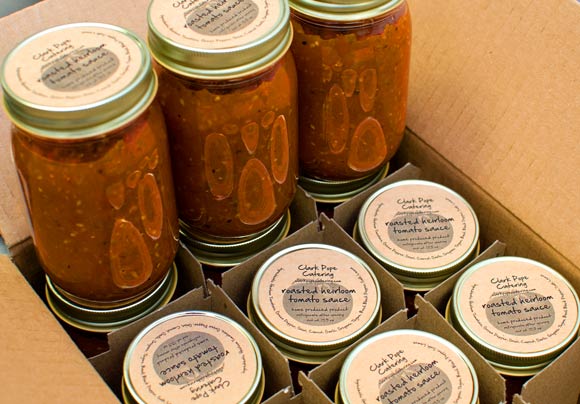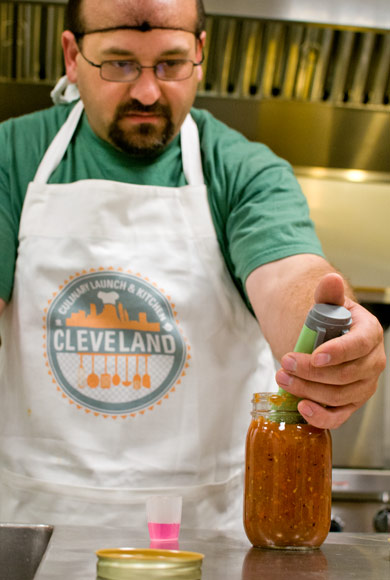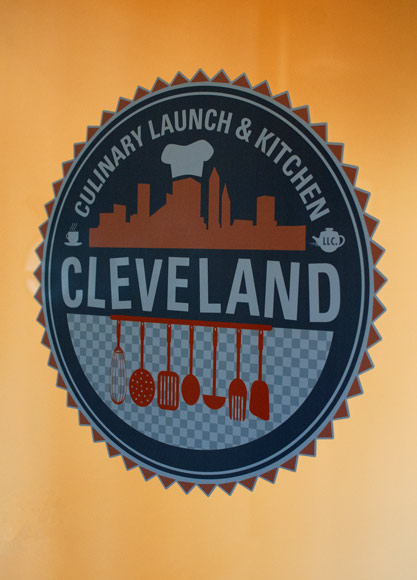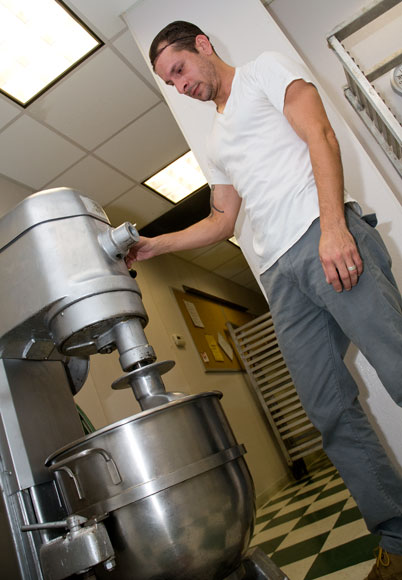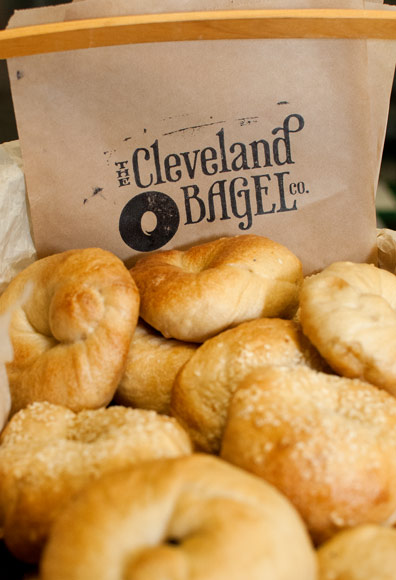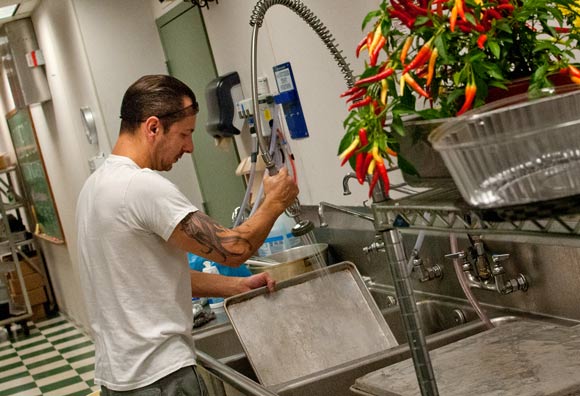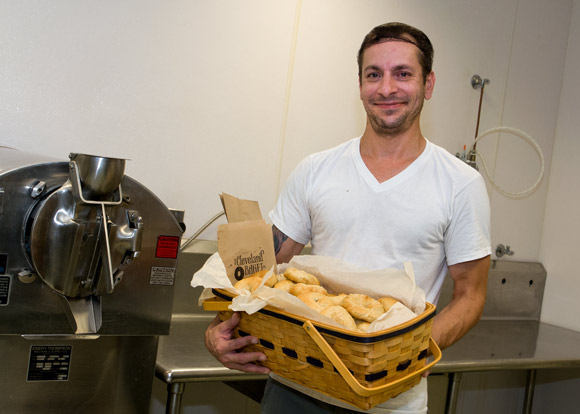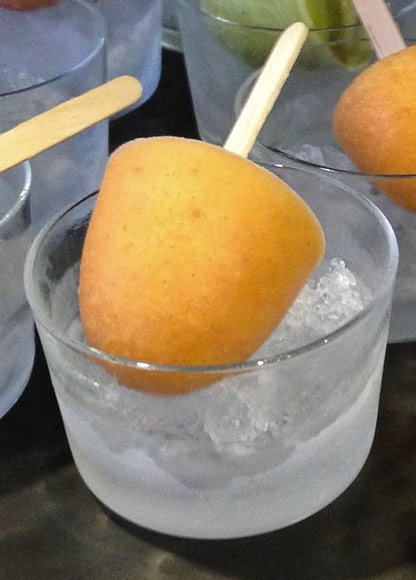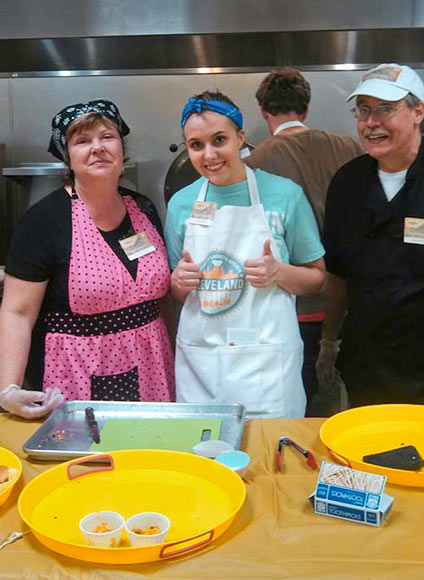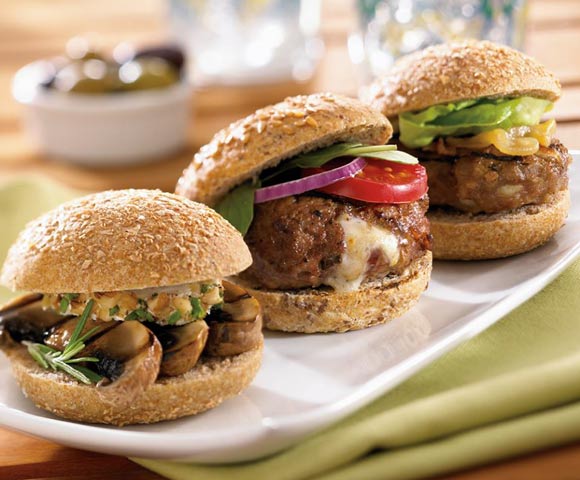recipe for success: food-based startups face unique challenges
Starting a successful food-based business takes more than a great idea and the ability to cook. Like any other entrepreneurial venture, food startups require planning, money and a willingness to go back to the drawing board. But those who do dive right in have found there is plenty of guidance, support and collaboration in the local food startup community.
"People in the food business need a different type of training than other entrepreneurs," says Emily Sullivan, coordinator of the Cleveland Culinary Launch (CC:K) food incubator program and relationship manager at the nonprofit lender Cleveland Economic and Community Development Institute (ECDI) "They may have a fabulous product, but they need assistance in putting the groundwork in place."
We checked in with a few of Cleveland’s newer food startups -- some that are just getting started, others that have been on the scene for a while -- to see what types of challenges they’ve experienced in getting their food-centric businesses off the ground.
Now Open (to Change)
One thing all of these businesses have learned is that a business plan is not a steadfast, permanent thing. "Everyone talks about the first steps being a business plan," says Elizabeth Pryor, who started Chill Pop Shop, a gourmet popsicle business, with her wife Maggie Pryor. "You have to go back to it constantly -- it’s a living, breathing thing. We’re trying to be very open minded and flexible as new things come our way. That’s important to us."
For example, when the Pryors first launched, they ordered a standard push cart from which to sell their popsicles at events, only to find it didn’t fit through the doors at the commercial kitchen. They soon switched to a freezer hitched to a bicycle, which earned them recognition and a following, but it wasn’t an efficient way to hit multiple events.
Ultimately, Chill Pop Shop settled on a simple stand. "We’re constantly evolving our plans and being flexible," says Elizabeth. "It’s that determination to always find a solution to the problem that keeps us going."
Like many foodies, Dave Wells dreamed about bacon. But not just eating it -- Wells cures his own and had planned to start a business devoted to selling it. But he soon learned that USDA regulations for curing bacon were onerous. "Every time I cured or smoked the bacon the USDA had to be there," he explains. "I wanted to go down to the kitchen at 2 a.m. to make the bacon so I could go to my day job."
After some research, Wells discovered that the regulations were much less restrictive if the bacon was simply an ingredient in other food. So he quickly switched gears and began developing recipes for various sliders that incorporated his bacon, as well as other ingredients. Within days he filed for an LLC, bought a domain for his new company, eastSliderwestSlider, and intends to unleash a new food truck this spring.
A Hole in the Marketplace
Dan Herbst saw an opening in the Cleveland market for authentic bagels. "We have bigger bagel chains here, but we don’t consider those real bagels," he says. So Herbst set out to build a better bagel. "I don’t have a background in baking," he explains. "In order to look like a champ, I said, 'If we’re going to do this, we need to know everything about the product and do it right.'"
After significant research and testing, he launched Cleveland Bagel Company. As dictated by the New York Bagel Bakers union, Herbst uses barley malt as the sweetener in his line of bagels, which he began selling with schmears at markets around town last spring.
"It took six or seven months before we got a bagel right without burning it," Herbst says. "There was a lot of wasted flour." But now, he adds, the startup consistently sells out of product at local events. "We have a pretty decent following."
Herbst plans on buying a food truck in the coming weeks and evolving his product into a mobile breakfast rig that utilizes his bagels. Eventually, he hopes to open brick and mortar stores.
The Right Package
For years, Clark Pope has dabbled in jarring his own sauces while substitute teaching. But recently, sales for his sauces have taken off, with Fresh Fork Market being one of his biggest customers.
"Last year, I decided the Cleveland food scene was a very positive thing," explains Pope. "So I took a leave from teaching and now I focus on catering and sauces."
While Pope is experienced in making sauces, jams and Bloody Mary mix, he wasn’t prepared for the regulations that dictate packaging and marketing his products. "It’s not enough to make a great product," Pope says. "It took countless hours to meet all the regulations. My talents are in the kitchen. I had to hire a graphic designer to meet the guidelines for packaging."
In addition to listing certain nutritional information in a very specific format, Pope also learned that all his products required an address on the label."I didn’t want to put my home address, so I had to get a P.O. box," he notes. "You learn more things through trial and error than through research."
And Pope has learned a lot. "There’s an awful lot more than simply having a tasty product," he says.
Building a Brand, One Bite at a Time
When Jeremy Koosed became a vegetarian back in 2000, he developed an interest in agricultural, environmental and sustainability issues as well. That interest led him to start Plant Kingdom almost a decade later, which makes a line of vegan snacks and other baked goods. He uses ingredients like hemp seeds, coconut and spelt to create tasty high-protein snacks.
Koosed slowly built up his business by offering free samples, he says. "It really did take years of sampling all of our stuff, but people know it now."
He's found his biggest opportunity in wholesale, specifically in stores where health-conscious customers have become familiar with his products. His snacks now can be found in coffee shops, yoga studios, fitness centers, the Cleveland Clinic Wellness Shop and even the Akron-Canton Airport.
Ultimately, Koosed would like to increase his direct-to-consumer business through website sales while continuing to grow his local retail presence.
With Added Success Comes Added Stress
Matt Fish's original plan for Melt Bar and Grilled was to open a craft beer bar, back when the craft beer trend was still in its infancy. The whole grilled cheese thing was a secondary focus. But as opening day -- September 2006 -- approached, Fish found that people were more intrigued by the grilled cheese sammies, so he flipped the concept on its head.
Today, Melt is riding high, with four locations in Northeast Ohio and a fifth set to open next month in Columbus. But far from coasting along on Easy Street, Fish says that the stresses of running a food-based business seem to outpace success.
"The challenge and pressure to continue to be popular, successful and relevant are huge -- much more daunting than the initial challenges of beginning the business and paving the road for potential success," Fish says. "You meet and conquer many challenges when you begin a business. This then leads to more complicated and intense challenges as you grow and become successful. That is the part that I was not prepared for. No experiences or class could have prepared me for the pressure, stress and severity I am experiencing as Melt continues to expand and grow."
216: The Best Place to Try
Whether they're just starting out or have been successfully peddling their food for years, these startups say Cleveland is a great place to launch a business. "Cleveland is good because everyone rallies behind the city," says Fish. "You want to succeed personally, but you want to see others succeed as well. There are people out there who have done this before and are willing to give you advice."
That web of support appears to be cultivating an ever-growing network of food-based startups. "None of us realized how receptive Cleveland would be to this," says ECDI’s Sullivan. "Cleveland is pulling itself up by its bootstraps and people want to bring new business to the city. And everyone loves food."
And when (not if) the going gets hard, Fish urges food entrepreneurs to stick with it. "Stay true to yourself and your initial idea or feelings," he says. "Each person gets into business for themselves for a specific reason. No matter what, do not forget the initial reason you took the leap."
Photos Bob Perkoski except where noted


